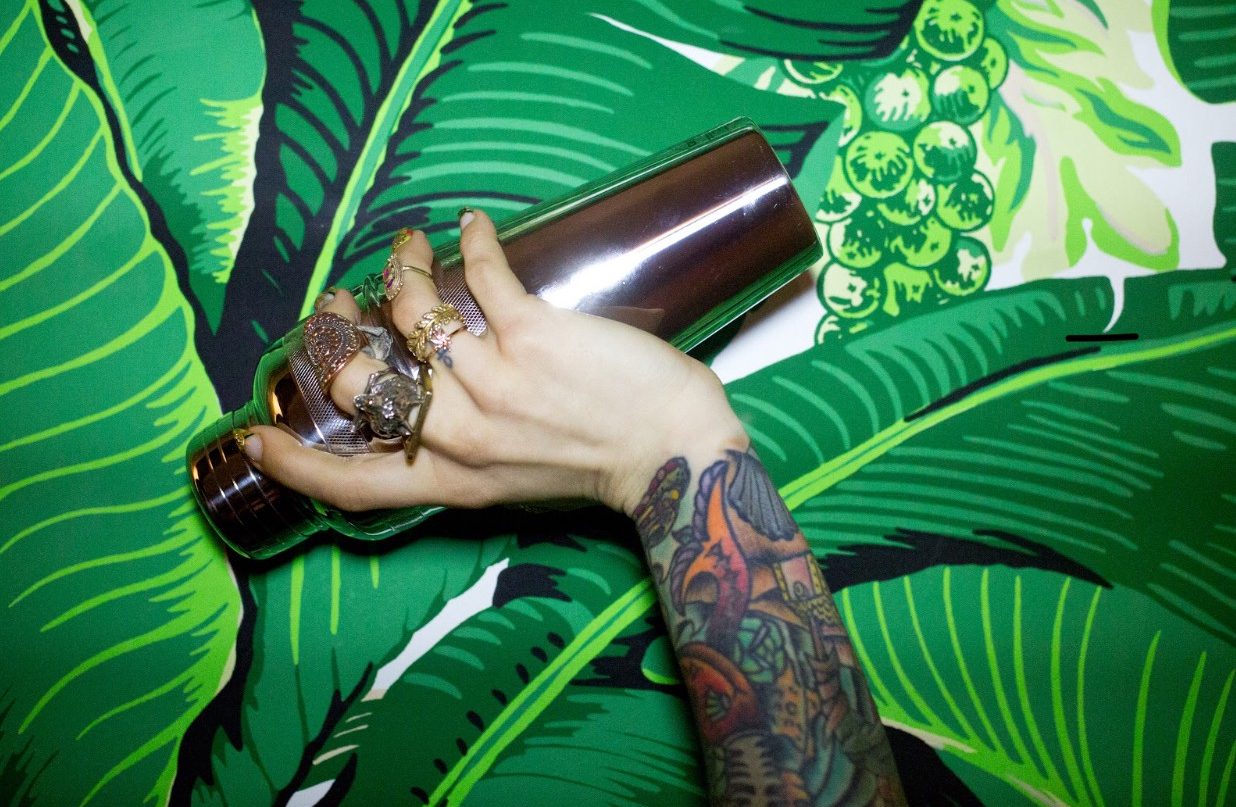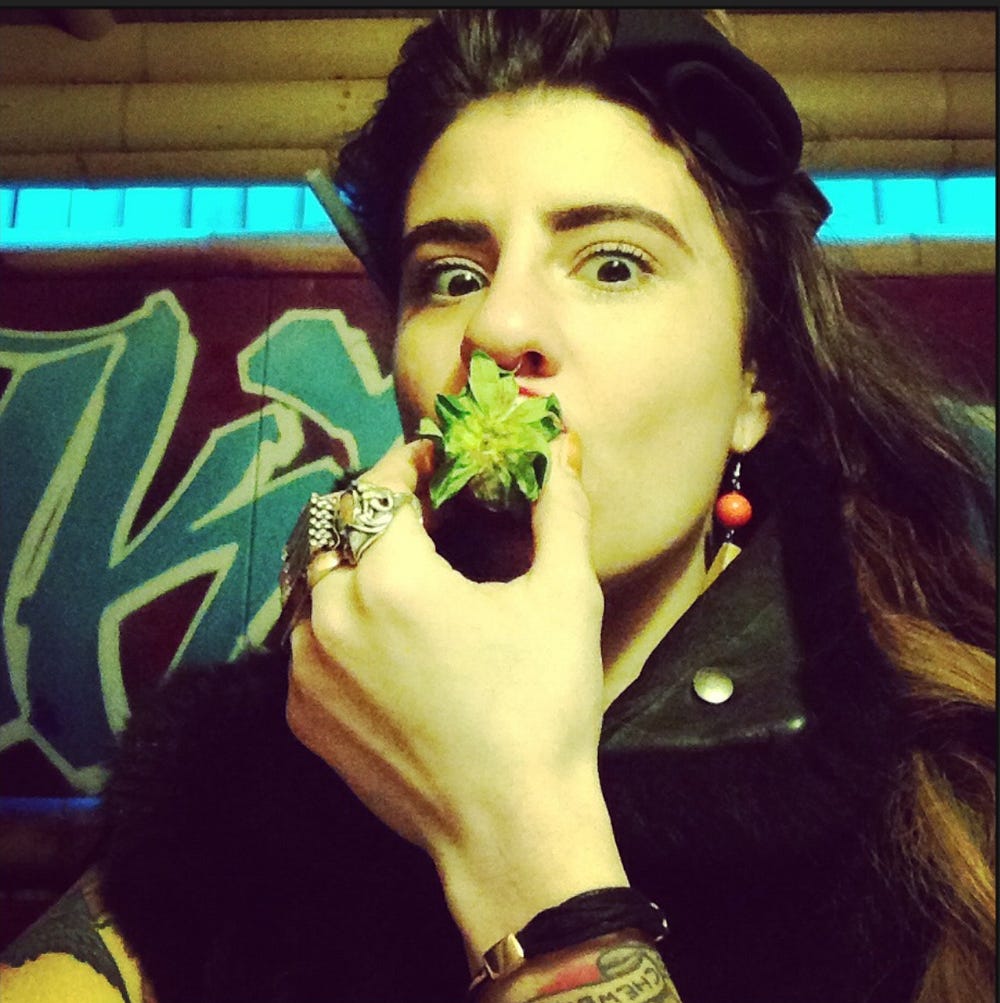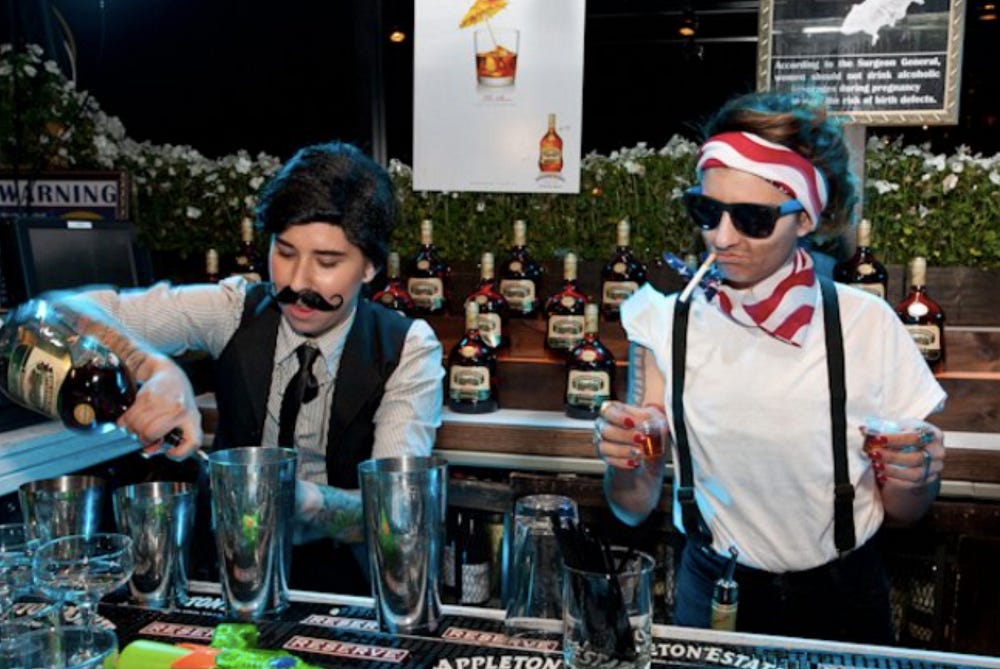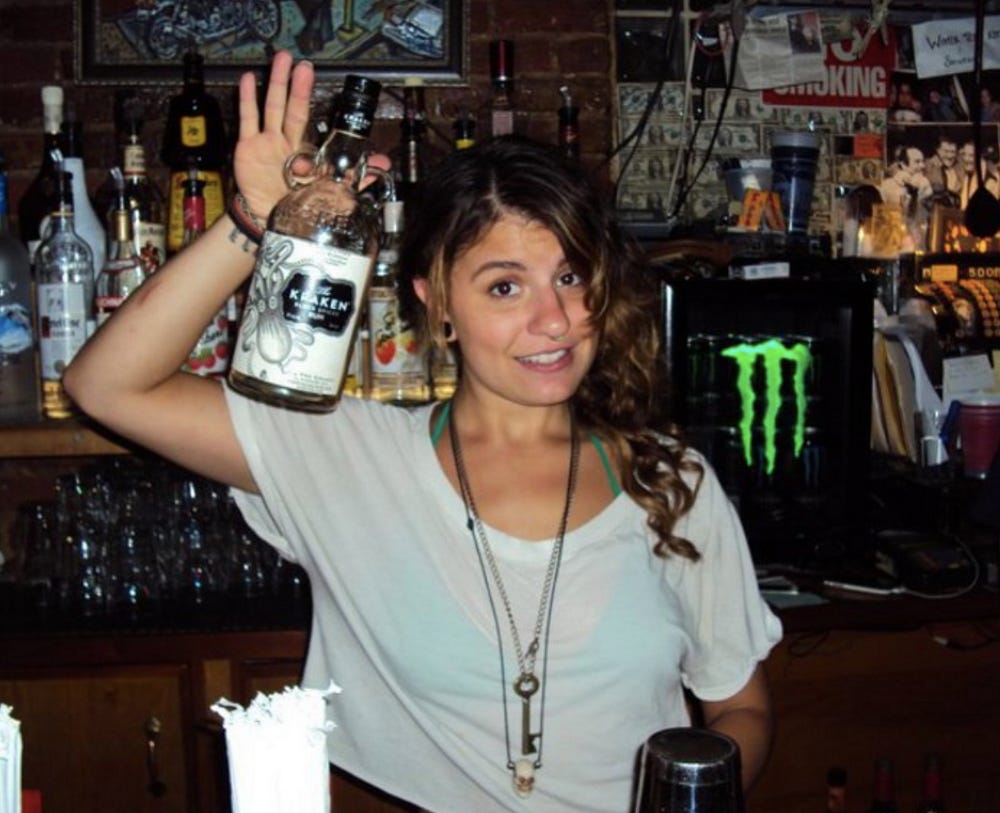
Prompt Images
Sexism In The Bar Industry Is A 5 Layer Cake: Stories They Wouldn’t Publish But {Time Is Up}
Industry Veterans Share Their Tales
Note from the author: This is the first in a series of stories that I was assigned, commissioned, or sold to major media publications that then would not publish the story for one reason or another. “Stories They Wouldn’t Publish” will include pitches that were never accepted, assigned pieces that were killed, and similar incidents. This particular story was sold on MARCH 10TH, 2016 to a ‘feminist’ publication, then offered to a few others, and yet here we are almost 2 years later in the era of #MeToo and NO. ONE. WOULD. PUBLISH. IT. This is as written in 2016, last edited 2017 and I have the edit history to prove it, I only tweaked mistakes because I make plenty.
Note from the editor: Fuck that. We’ll publish your story, Danielle. Thanks for the opportunity.
As it stands, being a woman who works with alcohol in America is a loaded profession. The sheer number of obstacles and challenges faced would stagger most people off the job, but the promise of big money on busy nights keeps many women coming back. Others are behind the stick or wielding the tray for love of the art of cocktails, with a chef-like ability to combine citrus and spirit into a masterpiece. All are worthy.
Service industry positions can provide the flexible schedules some women need to care for family or work on another career; some are in it for life. Both are worth consideration, equal opportunity for advancement, equal pay, and safe workplaces. The hunt for a job that practices any of the above is no easy task. Even places where management has the best intentions cannot control the actions of hundreds of people in a crowded space all at once.
At one job, I was either touched, pushed, elbowed, fondled, or just downright assaulted at least once a month.
And that’s a very low estimate. Three years at a job like that clocks me in at a conservative maths generated 36 incidents involving my body, and that’s what I haven’t outright forgotten or blocked out. How many of those went unreported because I simply did not have time to stop making money and address it? Probably somewhere around 80 percent. And that was just one job, one place, and one kind of direct, quantifiable sexism.
There’s levels to this shit, like some fucked up birthday cake where they baked the girl inside by accident.

Me eating strawberries to deal with sour grapes (2012)
Here are 5 of the myriad ways that women get a tough break at your local watering hole, club, or chain restaurant. Some in their own words:
Sexism By Law
It’s little known in the bar community that in many states, women were expressly prohibited by law to even be bartenders from 1942 to 1972. Historical records cited in a Wall Street Journal article on the subject suggest that while female bartenders were few, they were influential. During World War II many took over responsibilities while men fought abroad, like many other fields. Bartenders also faced the same story: men returning from battle looking to lawmakers (and bar owners) to return things to the old status quo, thus giving working women the boot. It was not lit.
In less than 20 years these laws were abolished, but it still remains a key contextual factoid. How women bartenders are seen today by some less appreciative patrons mirrors terms used in 1940s press: harlots, screw-ups, upstarts, and many other loaded terms were just some of the nicer ways men back then described women who had the gall to serve a drink.
I wrote this about my first bar job some time ago and recently found it again:
“I’m outspoken and liberal, but somehow find myself working at a bar named after one of the shittiest and most corrupt politicians in the history of America. What the fuck is wrong with me. I serve offensive titled drinks like the buttery nipple, Irish car bomb, and god knows what other garbage for the body and soul. It was so ironic that they also only hired women, most of the customers were neighborhood male cops.”
The author as a baby bartendress circa 2009 Photo: Justin Lugo
Sexism in Hiring
This is one of those great two-pronged-situations. Many bars and restaurants are gender-neutral about hiring, and those are great places to patronize. But in my personal experience, and that of many others, your position often depends on your gender.
Some places hire all women to sexualize the environment. Some hire equal amounts of men and women for the same reason, and press for good looks. Others hire all men to de-sexualize the environment, which is also shit because it assumes that women are “too distracting.” Some place men behind the bar and women on the floor, because women have been socialized to put up with the dangers of not having a hulking piece of wood in between you and the customer. All of these are messed up practices that not only hetero-normalize a job, but also actively exclude women and gender-nonconforming individuals at times.
The fudge in between this layer and the next: many places of business also assign specific tasks based on gender. You don’t need hard facts and data to prove these points. Many TV shows such as Bar Rescue, Undercover Boss, and Big Tips: Texas are just a few examples where it’s apparent, loud, and proud that sexualizing the women specifically for the male gaze is part of the marketing plan to sell more alcohol. Many jobs, such as bar back or porter are only given to men.
“Where I was working, the general manager was a horrible, sexist pig. He would tell me I was gaining too much weight or if I wasn’t wearing enough makeup. The final straw was when a regular who had gotten particularly drunk touched me inappropriately. I told my manager he needed to be cut off and removed immediately. My manager laughed and said, “You should take it as a compliment.” That was the end for me.” —A.T.

A friend and I once performed in male drag for a competition where all other contestants were cis-males to neutralize any gender based judgements on our performance, no surprise that it worked. (2011) Photo: Natalie Jacob
Sexism in Uniform and Dress Code
Which brings me to what is sometimes the most literally uncomfortable part of being a non-male individual in service: your outfit. Some dress codes are assigned by position, others are company-wide. Being told to dress sexy, verbally, by a leering boss, is not fun. And when you need cash and have to just ignore it, it’s hard to feel empowered by your choice.
There are often cases of women being required to wear heels and a dress while men wear shirt and tie. Or cocktail servers, who are often all women, wear dresses while bartenders of both sexes don the shirt and tie. There were times when I dressed sexy at work for myself, and others when I was being encouraged to do so, both instances did not change the perceived entitlement of men to touch my body without permission.
“My shifts were poorly paid marathons of leering and ass-grabbing; I was told by my manager that I needed to play along if I wanted to make decent money. I left feeling unsafe and totally drained most nights. “ —M.M.
The scene, #2010. My first day stepping out from the bar and onto the floor. This was my assigned uniform, heels included. When temperatures allowed, we could wear a blazer/coverup, but when it was hot and crowded, was I ASKING FOR IT when people grabbed or touched me? Was it easier sometimes to just sharply reprimand someone and move on with my night than going through the process of having to tell another human what happened? Showing skin or choosing not to show skin for money, comfort, or pleasure is not a ticket to access to someone’s body. Does feeling like I look good mean anyone is welcome? No. I think not.
Sexism in Payment
I used to hear lots of complaints from male coworkers who lamented their lack of tip-generating anatomy: breasts and butt. This was so demeaning and there are many reasons why. Leaving aside the deep fuckery of America’s tip-based economy, the very idea that breasts are worth more or less money in a service capacity is dismal as all hell.
“The amount and degree of sexism I used to put up with as a young woman bartender were astounding. ‘Well, if you ever want a butt massage, he smirked, just look at my banana fingers. I give the best butt massages.’ The owner of the bar I worked at said to me one night. I wasn’t sure in that moment whether to kick him in his bloated face or barf on his ugly, dirty sneakers. But I would have gone hungry if I quit.” —N.K.
Sexism In Practice
As should be now crystal clear, advancement in these positions carries a sexist edge across the country, yet another loss for people who identify as female. Though not every business adopts these practices, bars or restaurants with an equal or randomized amount of male and female staffers all-around are quite rare.
Often, roles are separated by gender: male bartender, female waitress, male barback, male manager, male owner, male chefs, female hostess, male DJ, male security. You get the picture. True gender diversity in the service industry is rare but often cherished by staff, patrons, and management alike.
“I have been passed up for multiple opportunities many times over the years. I have seen less qualified men step into roles or get handed things who have been there for less time than I. I’ve witnessed male employees sexually harass female employees or treat them disrespectfully. Even after making management aware of it, parties had no repercussions for their actions. That means, essentially, you’re allowed to disrespect the women that work there. People in power have abused their position and done inappropriate things to me directly. This has affected my personal life, work environment, and my emotional well-being at times. Overall I would have to say my views on working in a bar is that it’s still very much a boys’ club, very much so for the bars I have worked in.” —N.J.
#2013, another ‘revealing’ work outfit (not a uniform) that let people think they could touch, demean, or make demands of my body.
It’s hard to imagine that women were once not allowed to serve alcohol, and yet sometimes still must fight for their position behind the bar. Many women deal with much worse, including outright assault, verbal harassment, and countless inappropriate guests or colleagues. The option to work in service is one that should be truly inclusive. Bars and restaurants should be safe places for everyone to work, and should step up to the plate when it comes to protecting and advancing equality.
People are always telling women to beware of naming the people who have mistreated you, so no one wanted to be named in this story. Even if you never call offenders by name, the anxiety of ‘influential industry men’ getting wind of an employee’s decision to speak out is often viewed as too risky. The men in these positions of power have a penchant for treating any who speak out as vengeful, scornful witches. It’s another industry-guarded secret that emboldens them to use harassment, intimidation, and harm to maintain the fortress of sexism that hurts all humans, everywhere.
Photos: Maria Penaloza; Natalie Jacob; Justin Lugo; Danielle Guercio
1/9/17 a note on the photos used in this story:
I asked a photographer (male) who often shot artistic images of my colleagues if I could use some of his photos for my story, unpaid, yes, but as someone who generates content from their literal body parts, I don’t see an issue asking for artwork to represent an idea like this one. When he learned that it was alluding to sexism in the industry, he backed out, and then I brought up the above points and that the arrangement that finds him a regular at an establishment in a position to photograph content without prior agreement using women’s bodies, he called me “young lady” and threatened to report me to my editor. So I used my own photos from my time *shrug*






